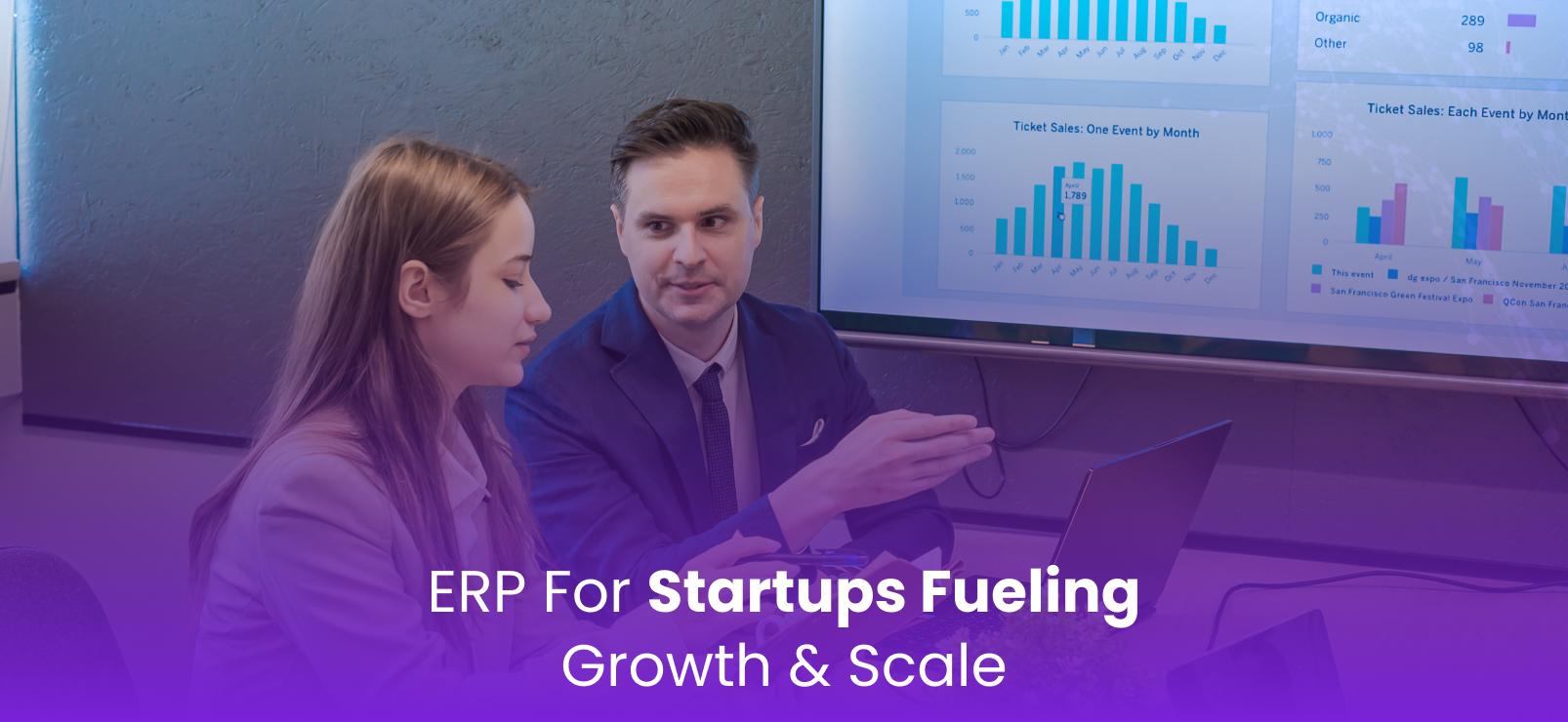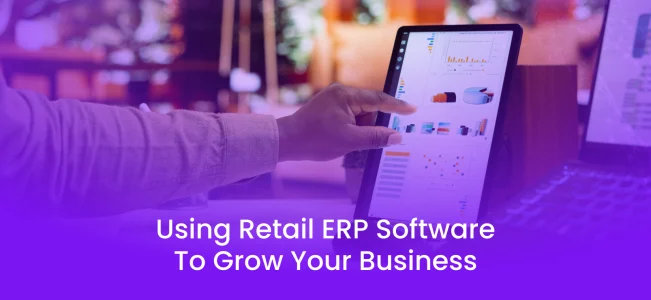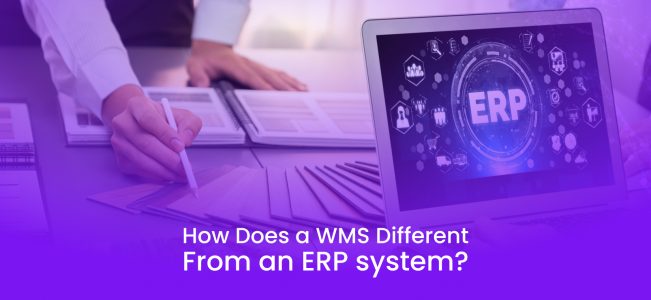ERP for Startups: Fueling Growth & Scale
To efficiently support growth, presently, startups and small businesses require the right business management software. ERP systems are easily predicted to be built only for large, global corporations with complex operations and massive budgets. However, some ERP solutions do fulfill these big organizations, but there are several others built to specifically meet the requirements of small and evolving businesses.
Why do Small Businesses need an ERP?
The right time to implement an ERP solution is during the early stages of growth. Numerous vendors provide solutions customized according to the small businesses that are scaling and require functionality that surpasses basic accounting or introductory software. In industries with strict regulatory compliance needs, such as food distribution, wholesale baby and child products, and pharmaceuticals, ERP software can help small businesses and startups meet these needs using built-in features, including audit trails, lot tracking, automated tax calculations, and more. Several ERP vendors specialize in industry-specific solutions, delivering systems built to manage the unique challenges of your business.
One of the biggest benefits of ERP software is its ability to be tailored. No matter you need a thorough sales report for a particular inventory item or a complex workflow to handle several warehouses throughout different locations, ERP systems can be customized to fit. Small ERP vendors with a team of in-house experts who know the software inside and out can lead you through personalization and system configurations. Bigger vendors usually depend on external consultants with specialized skills to support more complex customizations.
An ERP system’s implementation can seem like a big step, but it’s the first step towards increased productivity, improved data transparency, and company growth. ERP software makes sure that manual processes, distributed spreadsheets, and disconnected systems won’t slow down your operations as they get more complicated.
Avoiding the Drawbacks of Patchwork Software
One common mistake startups make depend on numerous disconnected tools, usually beginning with basic accounting software such as QuickBooks and then progressively adding more individual systems. While this might seem cost-efficient at first, it leads to inefficiencies, including:
- Duplicate data entry
- Manual imports
- Restricted reporting
- Fragmented workflows
As a business scales, these inadequacies rapidly become blockages, stopping growth and maximizing the risk of data errors. A centralized ERP solution eradicates these pain points by including all crucial functions, including accounting, inventory, sales, shipping, and more, into one system. This not only enhances accuracy but gives business leaders real-time transparency into performance, allowing smarter, faster decisions.
Key Benefits of ERP for Startups
A well-executed ERP system offers more than just software; it offers the infrastructure required to fuel maintainable business growth. Here’s how:
-
Process Automation
Manual tasks such as order processing, invoicing, and reporting are automated via ERP systems, saving time and decreasing the possibility of human error.
-
Reduced Manual Work
With ERP systems, manual spreadsheet administration and redundant data entry are reduced. This gives your staff more time to focus on high-value initiatives that benefit the company.
-
Real-Time Reporting & Analytics
ERP gives entrepreneurs access to accurate, real-time data through reports and dashboards that can be tailored. This visibility allows founders to monitor performance, spot trends, and make better informed decisions.
-
Scalability
ERP systems are developed with startups as they expand, whether through product launches, market expansions, or increased operations. Each time you reach a new milestone, you won’t need to update your program.
-
Improved Customer & Employee Experience
Streamlined operations lead to faster order fulfillment, fewer errors, and better communication across departments. This improves both employee productivity and customer satisfaction.
ERP Costs for Startups: Worth the Investment
One of the common misconceptions regarding ERP is that ERP systems are too costly for startups, specifically. Although ERP requires investment, it offers significantly more capability and value than simple systems. ERP saves money over time by integrating operations into a single integrated platform, even if many standalone tools require monthly fees.
Cost varies based on your business size, number of users, required features, and customization requirements. On average, ERP systems for small businesses start at around $10,000 annually. This usually involves:
- Server and infrastructure maintenance
- User engagement
- System Upgrades
- Data backups and security
- Antivirus and anti-ransomware protection
When assessing ERP options, do not emphasize only price. ERP is a long-term strategic investment. Think of it as selecting a technology partner that will support your company as it evolves.
What to Expect During ERP Implementation?
ERP implementation for a small business, especially a startup, might sound overwhelming, but only through the right vendor. The complexity and timeline are based on factors including:
- Your data’s existing state
- The processes that should be aligned
- The quantity of systems being replaced
- Training required by your team
Startups with clean data and organized processes usually undergo smoother transitions. It is also significant to keep open communication with your ERP vendor, ask questions, and connect across the process. Unlike basic software that could be set up in a few hours, ERP implementation normally takes numerous weeks and involves:
- Data migration
- Go-live and post-launch support
- System configuration
- Planning and scoping
- Training and testing
Selecting the Right ERP Vendor
Your ERP vendors’ size is not everything, but it could influence your experience. Here is what to consider:
- Functionality: Big-name ERPs such as SAP or NetSuite deliver a wide range of features, while smaller providers might deliver niche, industry-driven solutions.
- Value for Money: Although smaller suppliers can have competitive prices, you ought to reconsider your choice on value rather than price only.
- Support: Smaller vendors usually provide more tailored service and direct access to decision-makers. Larger vendors might offer 24/7 worldwide support, but with less personal touch.
Working with vendors who are aware of their specific challenges and can provide customized, adaptable solutions is frequently beneficial for startups.
Final Thoughts
ERP is no longer beneficial to businesses. An ERP enables startups and small businesses the automation, structure, and insights they need to expand successfully and sustainably. Don’t be put off by the name; making an early ERP investment could be one of the best choices you make for your business future.
Why Choose the CERP Suite for Your Startup?
CERP Suite is a startup-friendly ERP solution that combines accounting, inventory, sales, and operations in one platform, while reducing manual work and disconnected tools. It provides real-time insights, tailored workflows, and built-in compliance features to upkeep smarter, quicker decision-making.
Given its scalability and cloud-based nature, CERP Suite evolves with your business while keeping costs less. With rapid implementation and expert support, it’s the trustworthy partner startups require to simplify operations and fuel long-term growth












